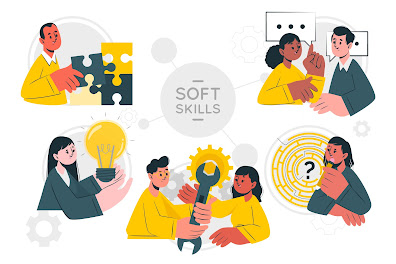The Role of Constructive Feedback in Level 3 Certificate in Assessing Vocational Achievement
In the dynamic world of vocational education and training, the Level 3 Certificate in Assessing Vocational Achievement plays a pivotal role in shaping competent assessors. One key element that cannot be overstated in this certification process is the importance of constructive feedback. Constructive feedback serves as a cornerstone for the continuous improvement of assessors, ensuring they are equipped with the necessary skills to guide learners effectively and enhance overall vocational achievement.
Understanding Constructive Feedback
Before delving into the significance of constructive feedback in the Level 3 Certificate in Assessing Vocational Achievement, it's crucial to understand what constitutes constructive feedback. Unlike generic criticism, constructive feedback is a thoughtful and informative response aimed at helping individuals identify areas of improvement while acknowledging their strengths. In the context of vocational assessment, constructive feedback is tailored to guide assessors in refining their practices and fostering a positive learning environment.
Fostering Continuous Improvement:
Constructive feedback acts as a catalyst for continuous improvement. Assessors working towards the Level 3 Certificate are engaged in a reflective process, evaluating their own performance and refining their assessment techniques. By providing constructive feedback, mentors and peers offer valuable insights that assessors can use to enhance their skills and approaches.
For example, feedback on the clarity of assessment criteria, communication with learners, and effective use of assessment methods can significantly contribute to an assessor's professional development. This continuous improvement loop ensures that assessors are well-prepared to adapt to the evolving needs of vocational education and provide a high standard of assessment.
Promoting Learner-Centered Approaches:
The Level 3 CAVA places a strong emphasis on learner-centered approaches. Constructive feedback serves as a mechanism for assessors to fine-tune their methods to better meet the individual needs of learners. By receiving feedback on their interactions with learners, assessors can adjust their communication styles, identify areas for improvement, and create a more supportive learning environment.
Moreover, constructive feedback helps assessors tailor assessments to accommodate diverse learning styles and ensure that learners receive fair and effective evaluations. This personalized approach not only benefits individual learners but also contributes to the overall success of vocational education programs.
Building Confidence and Motivation:
Constructive feedback is a powerful tool for building confidence and motivation among assessors pursuing the Level 3 Certificate. The acknowledgement of strengths and the guidance on improvement areas contribute to a positive learning experience. When assessors feel supported and empowered through feedback, they are more likely to approach their role with enthusiasm and dedication.
Furthermore, positive reinforcement in feedback encourages assessors to persist in their professional development journey. This motivation is essential for assessors to stay committed to the continuous learning required for maintaining high standards in vocational assessment.
Enhancing Assessment Quality:
The Level 3 Certificate in Assessing Vocational Achievement sets a benchmark for assessment quality. Constructive feedback is instrumental in ensuring that assessors meet and exceed these standards. By receiving feedback on the accuracy and fairness of their assessments, assessors can make informed adjustments to guarantee the validity and reliability of their evaluation processes.
Feedback also plays a crucial role in highlighting areas where assessors may need additional training or resources. This proactive approach to professional development contributes to the overall enhancement of assessment quality within vocational education.
Fostering a Culture of Collaboration:
Constructive feedback creates a culture of collaboration among assessors, mentors, and peers. Through the exchange of insights and experiences, a supportive community is formed where assessors can learn from one another. This collaborative environment is particularly beneficial for those pursuing the Level 3 Certificate, as it provides a platform for sharing best practices, discussing challenges, and collectively working towards excellence in vocational assessment.
Conclusion
In the pursuit of the Level 3 Certificate in Assessing Vocational Achievement, constructive feedback emerges as a linchpin for success. It serves as a catalyst for continuous improvement, promotes learner-centered approaches, builds confidence and motivation, enhances assessment quality, and fosters a culture of collaboration. As assessors navigate the intricate landscape of vocational education, the invaluable guidance provided through constructive feedback ensures that they not only meet the certification requirements but also excel in their role, ultimately contributing to the overall success of vocational education programs.
.jpg)


Comments
Post a Comment